Blog
The Latest News

Building Plausible Futures by Jerry Pournelle
/
0 Comments
This article by Dr. Jerry Pournelle was originally published in Writers of the Future Volume III. Timeless advice then and now.

Writers of the Future Contest – 3rd Quarter 2017 Winners
The judging results are in! And here are the 3rd Quarter 2017 Writers of the Future Contest winners.
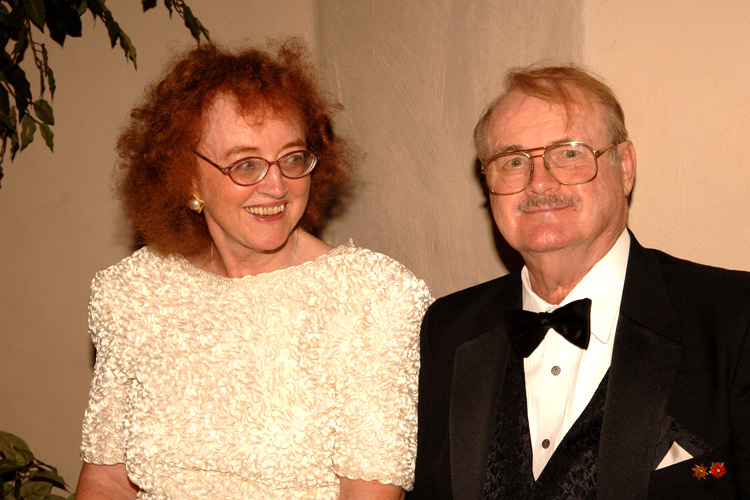
Jerry Pournelle Leaves a Legacy of Helping New Writers (1933-2017)
L. Ron Hubbard Writers of the Future Contest Pays Tribute to Jerry Pournelle (1933 - 2017). Jerry leaves a legacy of helping new writers.
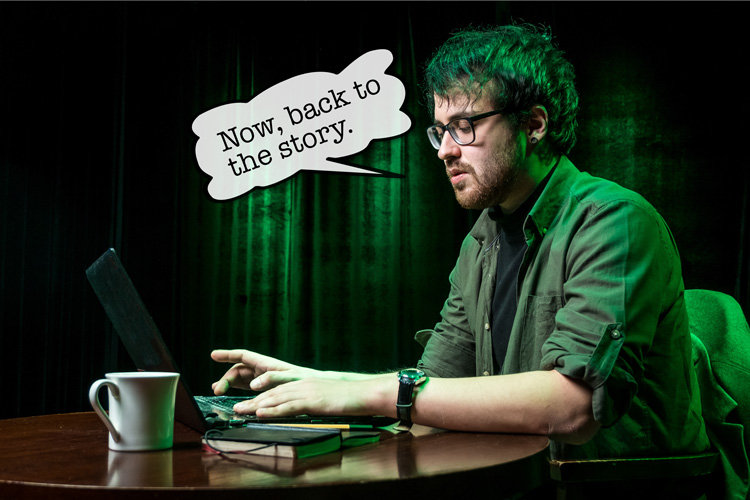
Back to the Story
What defines "good" writing when it comes to a story? That's a question I have to ask time and again as I'm judging contest entries.
 https://writersofthefuture.com/wp-content/uploads/2018/01/Pat-Henry-presentation_IMG_1841.jpg
500
750
Joni Labaqui
https://writersofthefuture.com/wp-content/uploads/2025/08/Writers-of-the-Future-logo_1667x1250.png
Joni Labaqui2017-09-07 02:48:182021-08-03 10:44:31Dragon Con 2017 – Day 4
https://writersofthefuture.com/wp-content/uploads/2018/01/Pat-Henry-presentation_IMG_1841.jpg
500
750
Joni Labaqui
https://writersofthefuture.com/wp-content/uploads/2025/08/Writers-of-the-Future-logo_1667x1250.png
Joni Labaqui2017-09-07 02:48:182021-08-03 10:44:31Dragon Con 2017 – Day 4
Dragon Con 2017 – Day 3
We are now over the halfway mark for the Atlanta Dragon Con and things are still going at high speed.
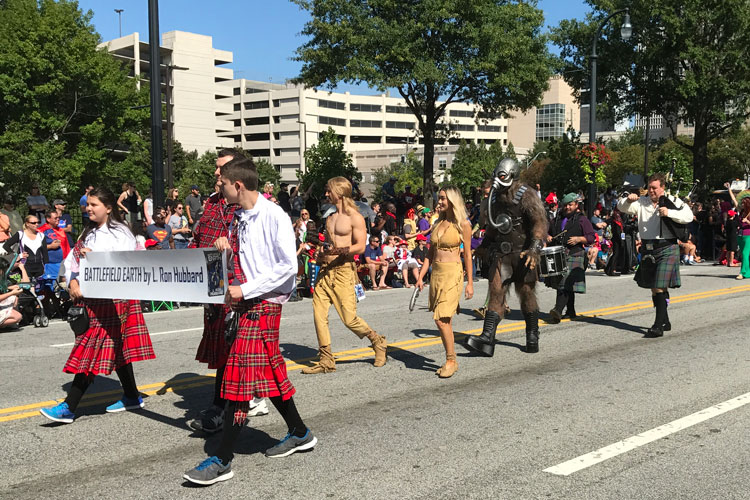
Dragon Con 2017 – Day 2
Another great day at the Atlanta Dragon Con! It all started with the Dragon Con Parade and our entry featuring Battlefield Earth.
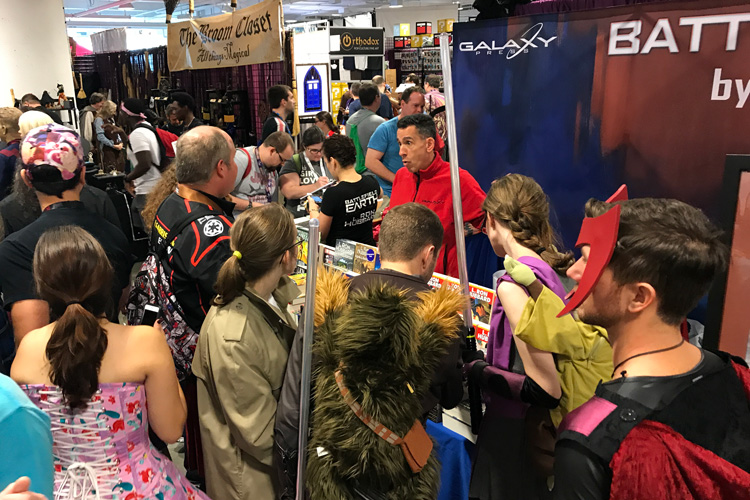
Dragon Con 2017 – Day 1
Today was the first day of Dragon Con in Atlanta, GA and it was…

Avoiding Cliché Openings
Many years ago, Damon Knight, a fine writer and editor, wrote a book on how to write short fiction. Damon talked a bit about avoiding clichés.
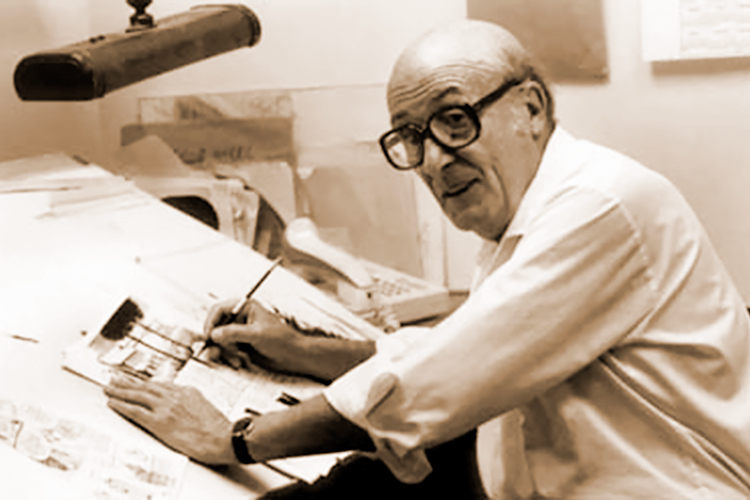
The Illustrators of the Future by Will Eisner
While my own career has been spent in the practice of sequential art, a form that arranges images and text in an intelligent sequence to tell a story, I have nonetheless always been professionally involved in the fundamentals of illustration. I, therefore, feel I have accumulated enough experience with which to endow my advice with some credibility.

Persevere
It's been nearly a year since I found out I was a finalist for L. Ron Hubbard's Writers of the Future contest, and very nearly five months since I was announced as the 2017 Golden Pen Award winner. To say my life has changed feels like an understatement.

Ken Liu on Writing a Star Wars Book
So, the news is out: I’m writing a Star Wars book as part of the Journey to Star Wars: The Last Jedi project. Working with the team at Lucasfilm Publishing has been such a pleasure — they’re the best.

Pictures That Tell Stories
This article was originally published in L. Ron Hubbard Presents Writers of the Future Volume XI. Mankind has used pictures to tell stories from the beginning of time. Recently, ancient cave paintings were discovered in France, and while cave paintings aren’t new discoveries, these are unlike anything seen before.

The Problem of the “Told” Story
I have talked about some of the most frequent problems that I see when judging for the Writers of the Future Contest, and today I’m going to tackle one of the biggest: the problem with “told” stories.
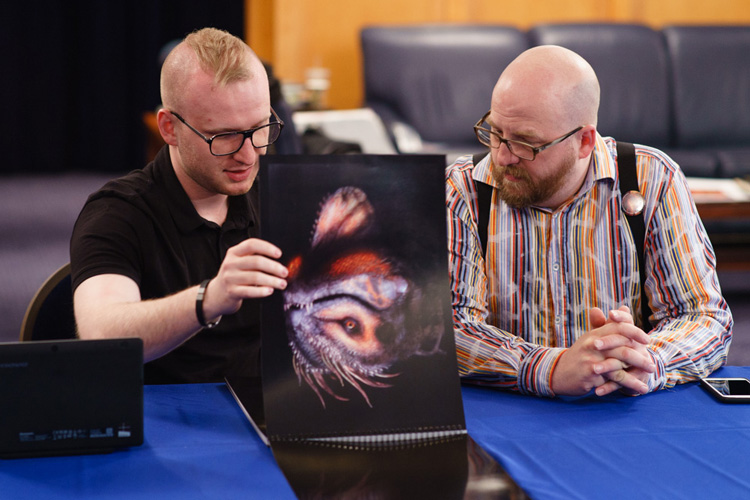
How to create an award-winning illustration
How does one actually create an award-winning illustration? Illustrators of the Future judges include some of the most famous illustrators of the 20 and 21st centuries—and are not easy to impress.

Your First Five Pages
A writer pointed out today that when you send a novel to an agent or publisher, they normally ask for the first five or ten pages, just so that they can gauge your writing skill. If those pages don’t grab the reader, it won’t sell. So, he wondered, what do I look for in those first five pages?

Meet the Winners – Jeremy TeGrotenhuis – 1st Q 2017
A couple of years ago I decided to stop blogging in order to focus on improving my fiction, and, well, I just won Writers of the Future, so that seems to have worked.
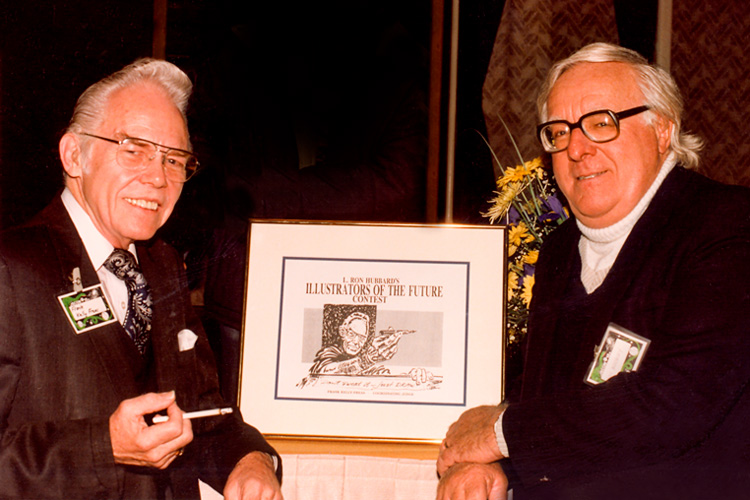
SF Illustration as Art by Frank Kelly Freas
Frank Kelly Freas was the first coordinating judge of the Illustrators of the Future Contest. Already a well established commercial artist and having known L. Ron Hubbard and having observed first hand Ron lending a helping hand to aspiring writers

Can You Draw a Dragon? How Illustrators of the Future Inspires Students
I am teaching in a home school environment and have students who are artists at heart. Each week I teach an art class that focuses on specific skills as well as ideas that inspire.

“Boosting” Your Prose
I earlier mentioned that when I used to write for competitions, I would make lists of ways that judges might look at my work in order to grade it. For example, some judges might look for an ending that brought them to tears, while another might be more interested in an intellectual feast. A couple of you asked what my list might look like. So here is a list of things that I might consider in creating a piece.

Are We at the End of Science Fiction?
In 2006, Writers of the Future judge Orson Scott Card addressed a very simple if not vital question which was published in Writers of the Future Volume 22.
These aren’t the best of times for science fiction.
